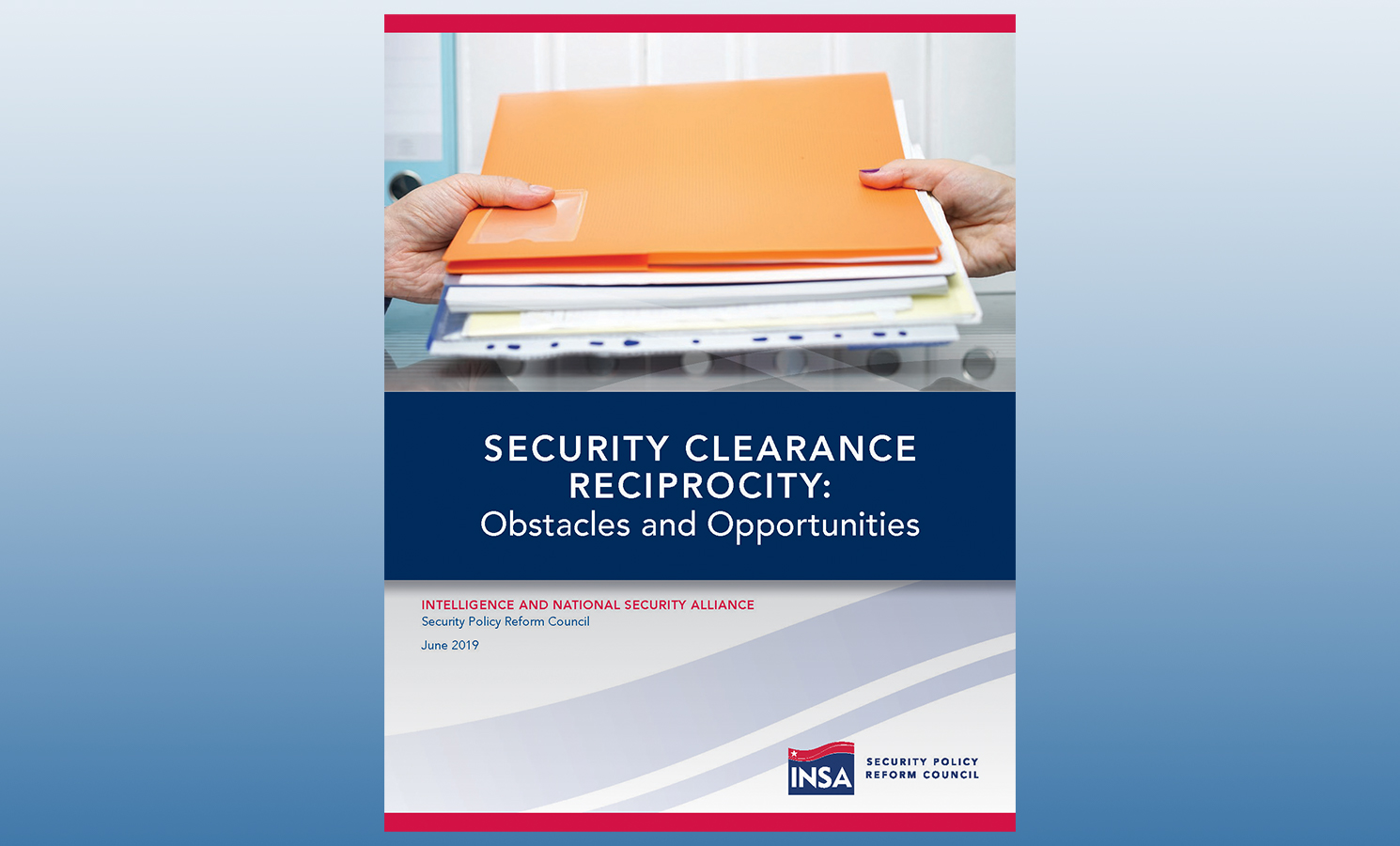INSA Paper Examines Impediments to Security Reciprocity, Offers 14 Policy and Process Improvements
Arlington, VA (June 26, 2019) - Delays caused by inefficiencies in security reciprocity, the process of “passing” a worker’s clearance from one agency to another, result in the estimated loss of 1,000 contractor labor-years at a cost of approximately $2 billion to the Intelligence Community and upwards of $8 billion across the Federal Government each year, according to a new INSA white paper.
Security Clearance Reciprocity: Obstacles and Opportunities (pdf) examines inefficient government security practices related to security reciprocity and the impact of these unnecessarily complex, burdensome, and costly procedures to both intelligence agencies and their industry partners.
“Fundamental reforms to clearance reciprocity are needed,” said Chuck Alsup, INSA’s president. “A more efficient reciprocity process would facilitate prompt transfers of clearances, expedite adjudications, reduce overhead costs, allow talented and trustworthy workers to get to work, and enable agencies to execute their missions more effectively.”
Produced by INSA’s Security Policy Reform Council, the paper identifies three principal impediments to security clearance reciprocity:
- Inconsistent policies and clearance standards across agencies;
- Lack of transparency and limited information-sharing between agencies; and
- Failure to allocate resources needed to process reciprocity requests and conduct polygraphs for already-cleared personnel in a timely manner.
The report offers 14 practical steps to improve policy and process inefficiencies. Specifically, it calls on the Director of National Intelligence, who serves as the government’s Security Executive Agent, to work with agencies to clarify policy guidance, use technology to speed reciprocity decisions, encourage sharing of data between agencies and companies, prevent the adjudication of individuals to the same standard twice, and enable currently cleared contractors and government employees to begin work at a new agency while additional information is collected and adjudicated.
“A top-secret clearance that is good enough for one agency should be good enough for any other agency,” said Charlie Allen, a 50-year CIA veteran who chairs INSA’s Security Policy Reform Council. “But because agencies don’t trust each other’s investigative and adjudicative work, they want to reassess people who are already cleared before allowing them to come to work. This wastes time and money.”
Media coverage:
- Homeland Security Today: Security Reciprocity Inefficiencies Cost Billions Across the U.S. Government
- ClearanceJobs: Security Clearance Reciprocity Failures Are Costing the Government Billions
- Federal News Network: Agencies losing time, talent and money due to security clearance reciprocity challenges
- Government Executive: OPM Cuts Security Clearance Backlog in Half, But Processing Delays Spell Trouble for Pentagon
- ClearanceJobs: Senate Seeks to Keep Investigations, Clearances Current After a Worker Leaves a Job
- Federal News Network: OPM Details Core Values Behind Coming Security Clearance Reforms Doctrine

